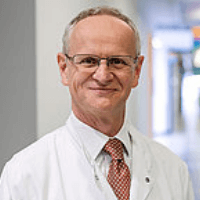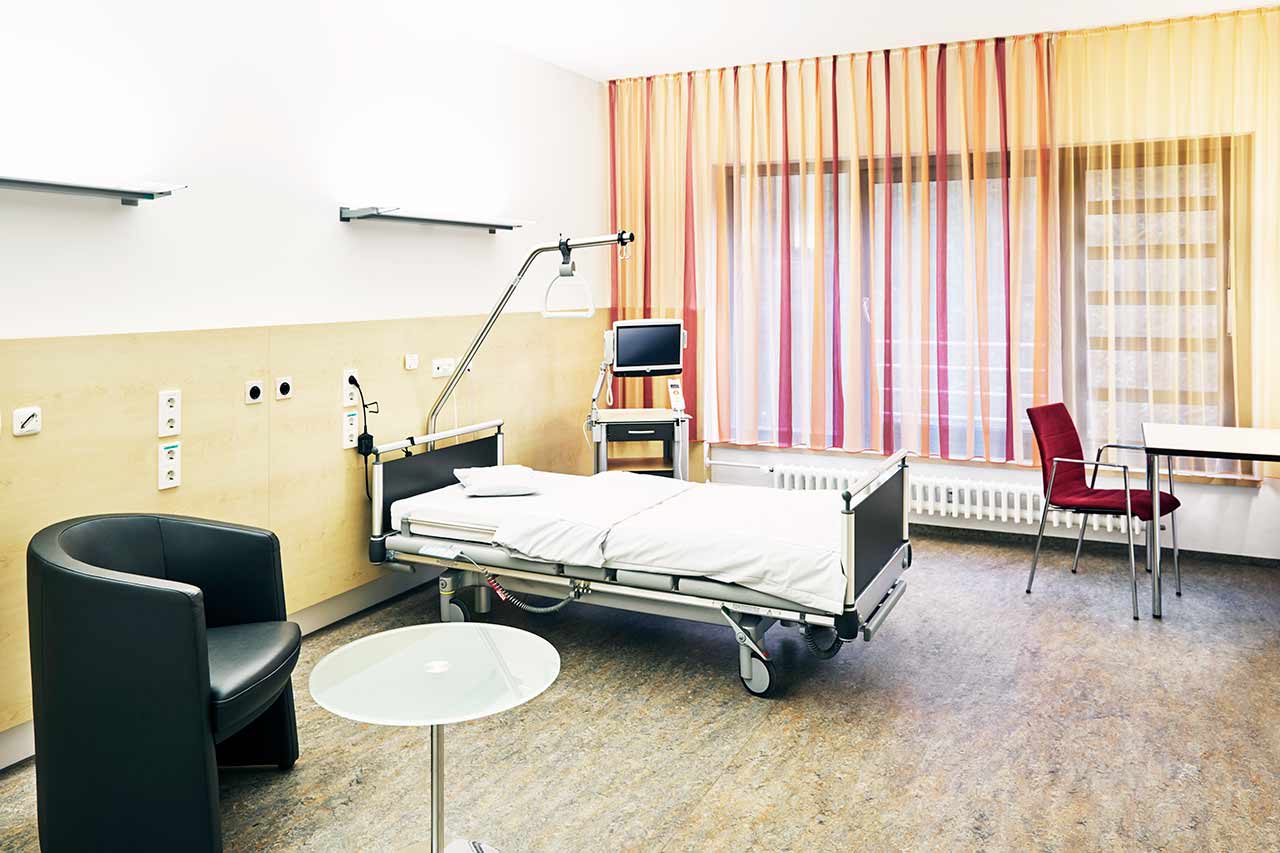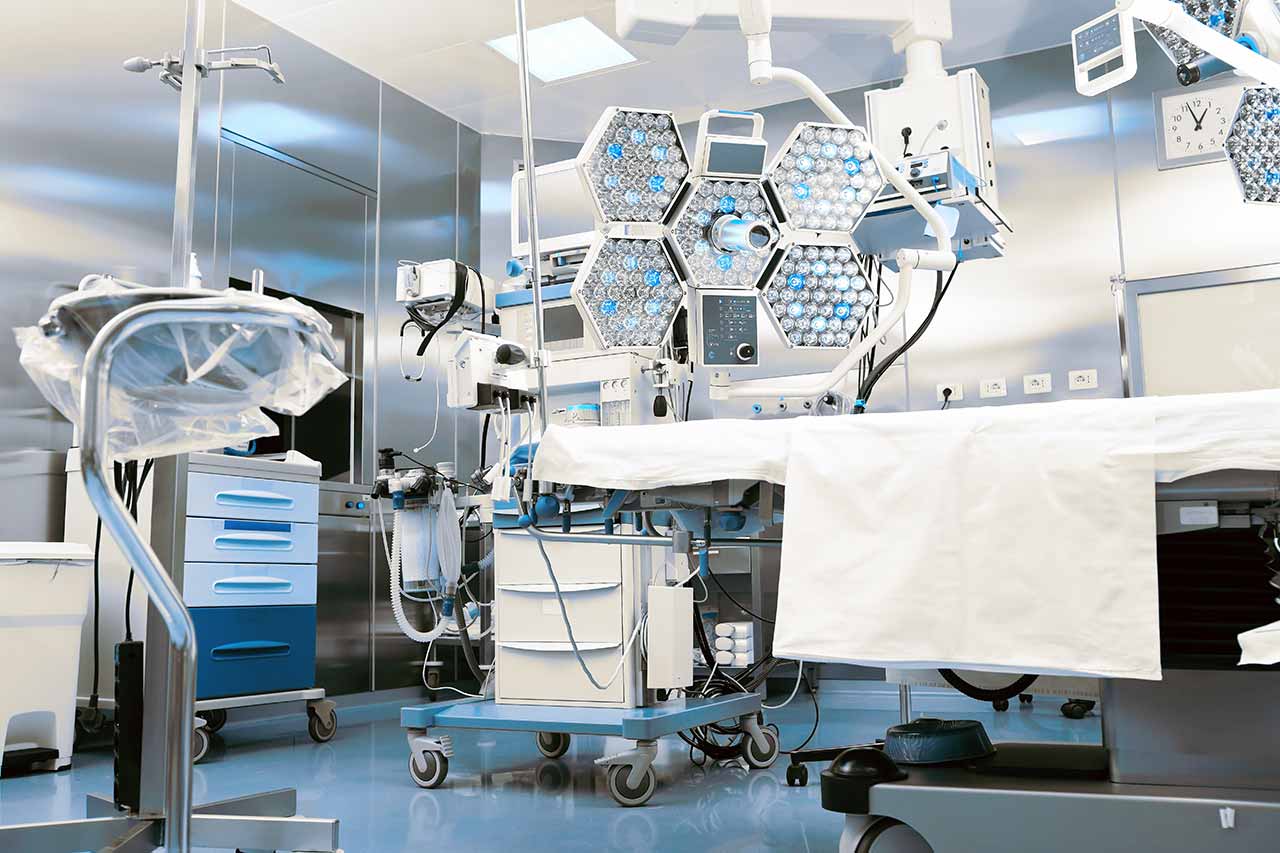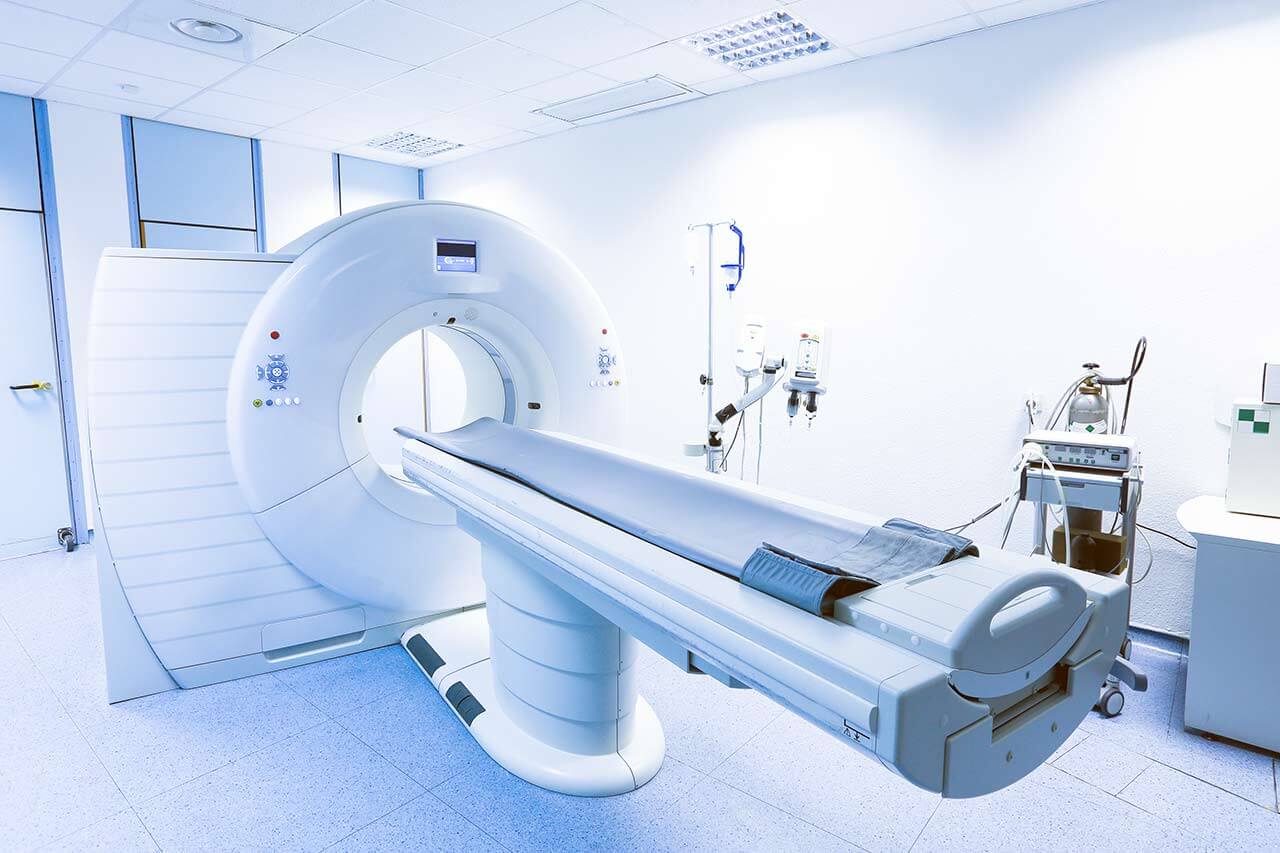
About the Department of Adult and Pediatric Neurosurgery, Spinal Surgery at Hospital Kassel
The Department of Adult and Pediatric Neurosurgery, Spinal Surgery at the Hospital Kassel performs all modern surgical interventions to treat diseases of the brain and spinal cord, as well as peripheral nerves. In addition, the department's medical team specializes in the surgical treatment of spinal diseases. The department's clinical priorities include the treatment of brain tumors, skull base surgery, surgical treatment of neurovascular diseases, spinal diseases, as well as the treatment of neurosurgical pathologies in children. During the treatment of patients with neurosurgical disorders, the specialists of the department work closely with doctors from the Departments of Neurology, Interventional Neuroradiology, as well as pediatric neurologists in order to provide comprehensive treatment. The department is the only Neurosurgery Center in North Hesse and has 42 beds for inpatient treatment. It performs more than 1,400 surgical interventions every year. Whenever possible, the surgeons use minimally invasive techniques, which greatly facilitate the patient's postoperative recovery. If complex surgical procedures are required, the progressive CT and MRI scanners are used for preliminary planning. The department is headed by Prof. Dr. med. Wolfgang Deinsberger.
The department's medical team has a rich and successful experience in the surgical treatment of brain tumors, which are one of the most common pathologies of the nervous system. Making an accurate diagnosis and determining the exact location, size and stage of the tumor require the high-quality diagnostics using advanced imaging equipment, which is carried out in cooperation with the Departments of Radiology, Neuroradiology and Nuclear Medicine. Depending on the medical history and symptoms, the patient may be indicated such diagnostic examinations as computed tomography, magnetic resonance imaging, including functional MRI, MRI-PET, MRI spectroscopy and MRI tractography, electroencephalography, PET-CT, SPECT, angiography, cerebrospinal fluid testing, cytological examination, etc. After obtaining all the necessary diagnostic data, the doctors of the department begin to develop the optimal treatment regimen. The treatment methods for brain tumors are not much different from those used in the treatment of tumors of other localization. The treatment is based on surgery, chemotherapy and radiation therapy. If the patient agrees, he can undergo immunotherapy within the framework of clinical trials. The specific type of brain tumor determines the sequence in which one or another therapeutic technique will be used. In the course of neurosurgical interventions to remove a brain tumor, the surgeons use cutting-edge operating microscopes, which contribute to the maximum safety of surgical procedures, eliminating trauma to vital structures of the brain. In addition, the department's operating rooms are equipped with intraoperative ultrasound systems, neuronavigation systems, intraoperative monitoring systems, 5-aminolevulinic acid (5 ALA) fluorescent navigation devices, ultrasonic scalpels, endoscopic instruments and other progressive devices. All of the above devices allow each surgical procedure to be performed with pinpoint precision, which is especially important in the course of brain surgery.
In the field of vascular neurosurgery, the main focus is on the treatment of patients with vascular malformations of the brain and spinal cord, such as cerebral aneurysms, atrioventricular angiomas, cavernomas, dural atrioventricular fistulas, etc. Both diagnostics and treatment of vascular neurosurgical diseases are carried out in close cooperation with specialists from the Department of Diagnostic and Interventional Neuroradiology. The first stage of diagnosis is CT or MRI scanning followed by cerebral and spinal cord angiography. Depending on the specific diagnosis and the degree of vascular lesions, the specialists can perform either open or endovascular surgery.
A special place in the department's clinical practice is given to the surgical treatment of spinal diseases. The department's neurosurgeons most often perform surgery to treat lumbar and cervical disc herniation, lumbar spinal stenosis, spondylodiscitis, as well as benign spinal tumors (extradural, intradural and intramedullary) and metastases in the spine, which mostly develop due to breast and prostate cancer.
The department also deals with the treatment of children with various neurosurgical diseases, including craniosynostosis, spina bifida, hydrocephalus, brain tumors, cerebral vascular malformations, brain and spinal cord injuries. When developing a treatment plan for a child with a neurosurgical disease, the department's specialists always take into account his age and the characteristics of a growing child's body in order to exclude impairments in the child's development in the future. The physicians from related medical disciplines, for example, pediatricians, pediatric neurologists, pediatric oncologists and others are often involved in the therapeutic process.
The department specializes in the diagnostics and treatment of the following neurosurgical diseases:
- Brain, skull base and pituitary tumors
- Trigeminal neuralgia and facial spasms
- Cerebrovascular diseases
- Cerebral aneurysms
- Atrioventricular angiomas
- Cavernomas
- Dural atrioventricular fistulas
- Cerebrovascular occlusive diseases (stenosis, Moyamoya disease, intracranial bleeding)
- Cerebrospinal fluid circulatory disorders (hydrocephalus)
- Tumors and degenerative diseases of the cervical, thoracic and lumbar spine
- Traumatic brain injuries and spinal injuries
- Peripheral nerve tumors, compression syndromes and damage
- Pediatric neurosurgical diseases
- Brain tumors
- Brain malformations (arachnoid cysts, Chiari malformation, Dandy-Walker malformation)
- Spinal cord malformations (spina bifida, myelomeningocele, tethered cord syndrome)
- Vascular malformations (atrioventricular angiomas, cavernomas)
- Hydrocephalus
- Skull malformations (craniostenosis)
- Traumatic brain injuries, spinal injuries
- Spasticity
- Peripheral nerve injuries
- Other diseases of the central and peripheral nervous system
Photo of the doctor: (c) Klinikum Kassel





